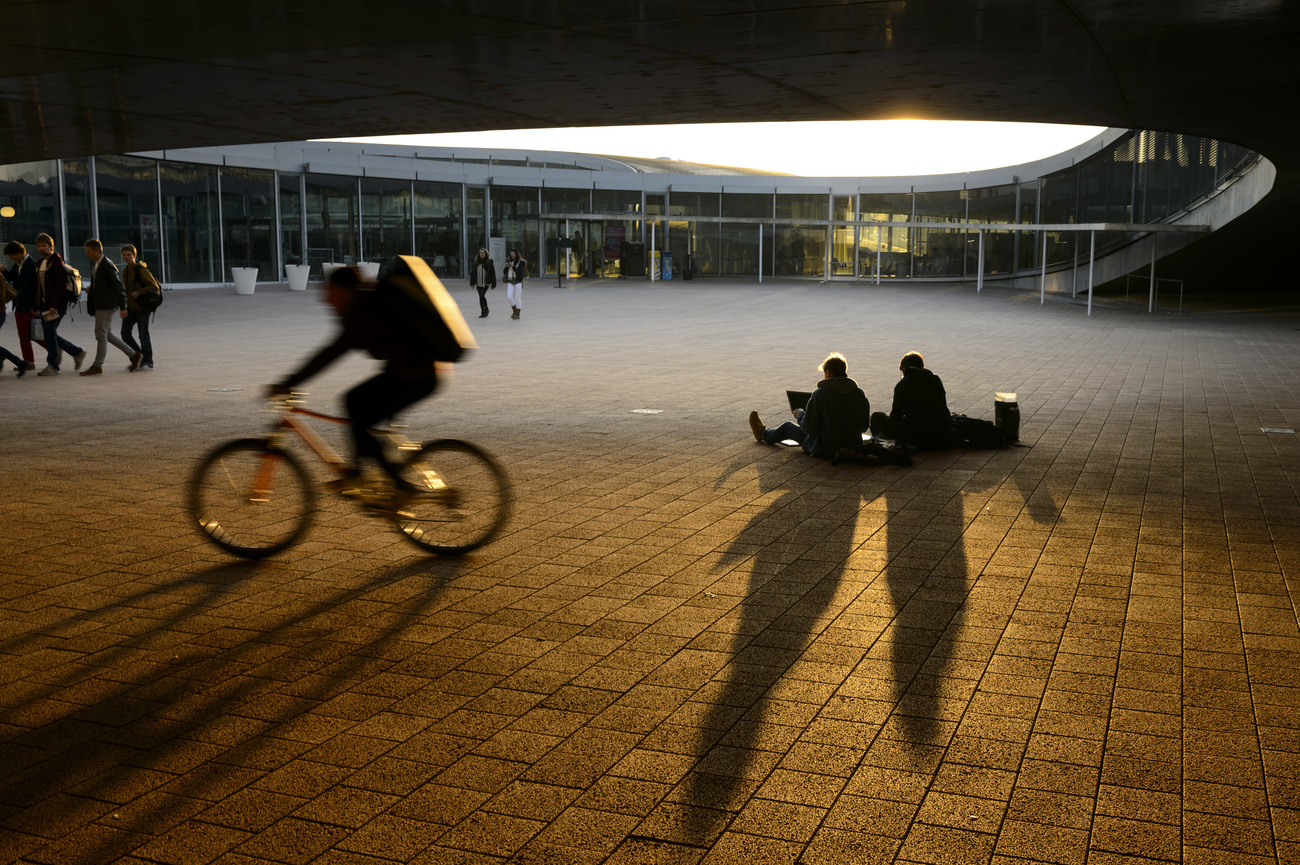
Elite Swiss university ordered to recognise all-male student society

One of Switzerland’s top universities was wrong to sideline a male-only student association, according to a Federal Administrative Court ruling.
The Swiss Federal Institute of Technology Lausanne (EPFL) was ordered by the court to recognise the Zofingia fraternity, which traces its roots back to 1819. The court ruled that freedom of association takes precedence over equality in this case.
Drinking, singing, fencing – these are probably the common images that people associate with a fraternity. At Zofingia, a student association spread throughout Switzerland, there is no longer any fighting, but in other respects the association has remained traditional: women are not allowed.
EPFL therefore refused to recognize Zofingia as a university student association. Unlike other associations, Zofingia was not allowed to use the logo, rooms and official communication channels of ETH Lausanne.
By contrast, the all-female organisation EPFelles, which is committed to the integration and support of female students, has been recognized by EPFL. “In contrast to EPFelles – or, for example, a men’s choir – Zofingia’s club goals are not tied to gender,” said a spokeswoman for ETH Lausanne. There is therefore no reason why a woman should not be allowed to join.
Zofingia defended itself against the non-recognition at a university Complaints Commission, which upheld the fraternity’s complaint. But EPFL didn’t want to let this slide and appealed the decision to the Federal Administrative Court in St Gallen.
This too decided in the spirit of Zofingia. Since freedom of association, like equality, is a fundamental right, there is a conflict of fundamental rights that must be resolved proportionately, said the judges in St Gallen. The non-recognition of Zofingia is disproportionate because EPFL can also achieve gender equality through other means.
The court also points out that only 40 students at EPFL are members of Zofingia and therefore do not pose a threat to the careers of female students. In addition, the non-recognition of Zofingia could lead to pure women’s associations – such as the EPFelles – also coming under criticism.
EPFL must now recognise Zofingia as a university student association. The university is condsidering an appeal to the Federal Court.
However, the chances of winning are likely to be slim. The Federal Court ruled in an almost identical case in 2014 that the University of Lausanne must recognise Zofingia. As a private association, Zofingia has the right to freely decide who can be a member, but equality must take a back seat.
This news story has been written and carefully fact-checked by an external editorial team. At SWI swissinfo.ch we select the most relevant news for an international audience and use automatic translation tools such as DeepL to translate it into English. Providing you with automatically translated news gives us the time to write more in-depth articles. You can find them here.
If you want to know more about how we work, have a look here, and if you have feedback on this news story please write to english@swissinfo.ch.

In compliance with the JTI standards
More: SWI swissinfo.ch certified by the Journalism Trust Initiative





























You can find an overview of ongoing debates with our journalists here . Please join us!
If you want to start a conversation about a topic raised in this article or want to report factual errors, email us at english@swissinfo.ch.